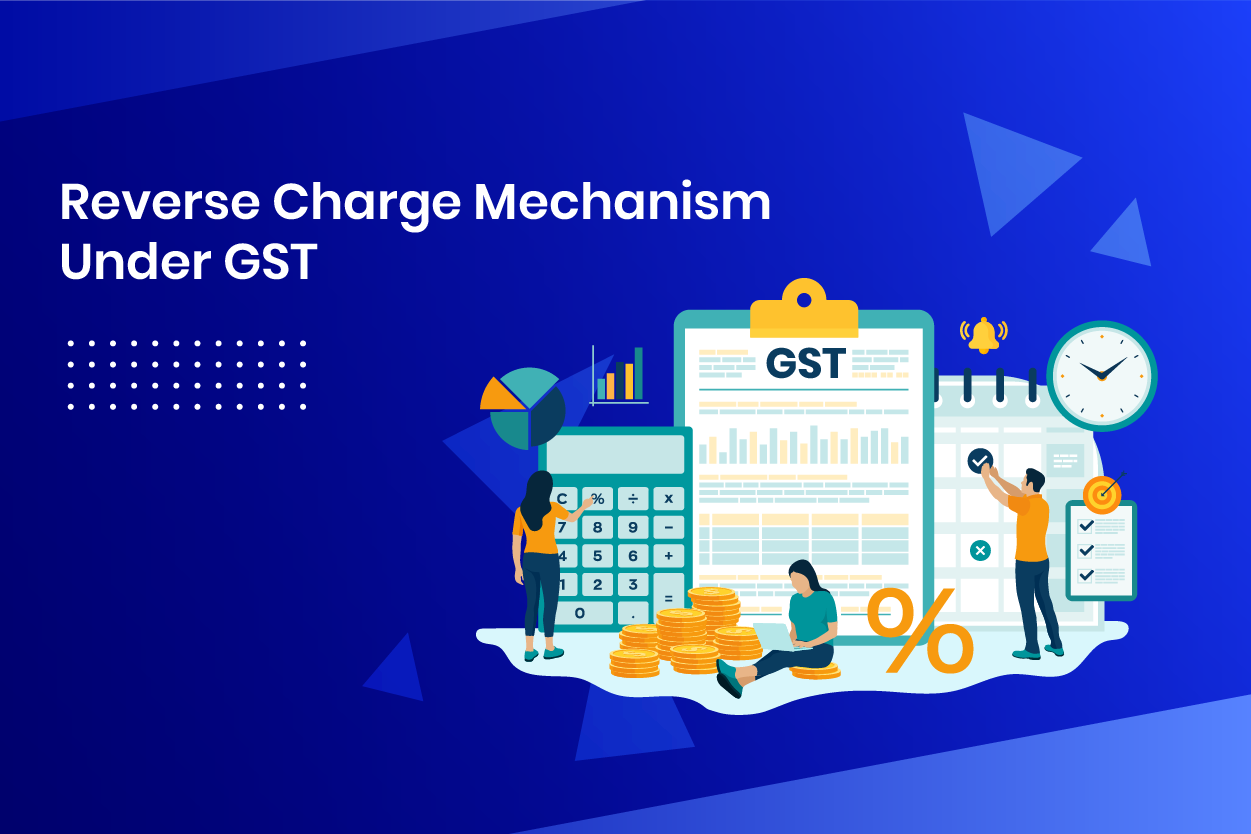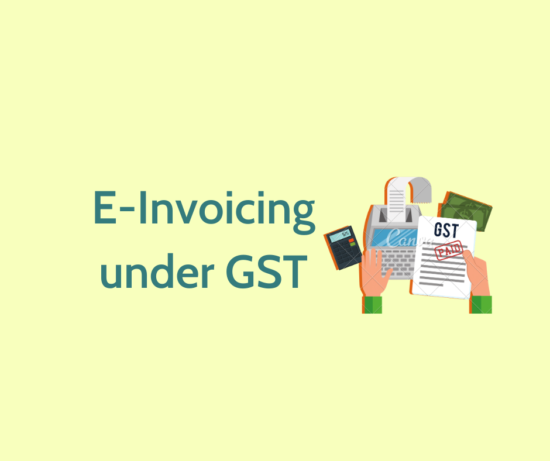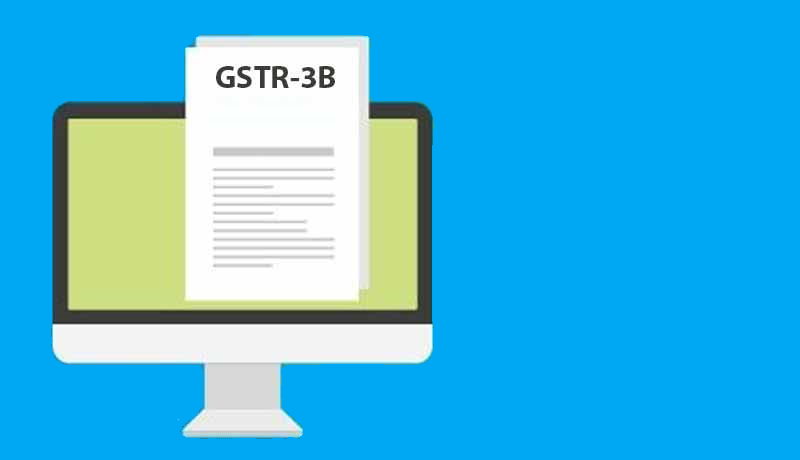The supply of goods subject to reverse charge mechanism (RCM) where the recipient is required pay GST, have been notified vide Notification No. 4/2017-Central Tax (Rate) dated 28-6-2017 (as amended ) under Section 9(3) of the CGST Act, 2017.
List of Goods subject to reverse charge mechanism (RCM) under GST law:
The list of notified goods on which GST is required to be paid under reverse charge is given below along with date from which reverse charge provisions are applicable on such goods. These goods are also notified for reverse charge under other GST Acts(s).
| Sr No. | Description of Goods | Supplier of Goods | Recipient of Goods |
| 1 | Cashew nuts, not shelled or peeled (RCM applicable from 01.07.2017). | Agriculturist | Any registered person |
| 2 | Bidi wrapper leaves (tendu) (RCM applicable from 01.07.2017). | Agriculturist | Any registered person |
| 3 | Tobacco Leaves (RCM applicable from 01.07.2017). | Agriculturist | Any registered person |
| 4 | Raw cotton (RCM applicable from 15.11.2017 vide N.N. 43/2017-CT(R) dated 14.11.2017) | Agriculturist | Any registered person |
| 5 | Silk yarn (RCM applicable from 01.07.2017). | Agriculturist | Any person who manufactures silk yarn from raw silk / silk worm cocoons for supply of silk yarn |
| 6 | Supply of lottery (RCM applicable from 01.07.2017). | State Government, Union Territory or any local authority | Lottery distributor or selling agent |
| 7 | Used vehicles , seized and confiscated goods, old and used goods , waste and scrap. (RCM applicable from 13.10.2017 vide N.N. 36/2017-CT(R) dated 13.10.2017) | Central / State Government, Union Territory or a local authority | Any registered person |
| 8 | Priority Sector Lending Certificate (RCM applicable from 28.05.2018 vide N.N. 11/2018-CT(R) dated 28.05.2018) | Any registered person | Any registered person |
| 9 | Following essential oils other than those of citrus fruit namely: a) of peppermint (menthapiperita) b) Of other mints: Spearmint oil, watermint oil, Horsemint oil, Bergament oil. (RCM applicable w.e.f 01.10.2021 vide N.N 10/2021-CT(R) dated 30.09.2021. | Any unregistered person | Any registered person |
Brief discussion on some of the goods subject to RCM:
RCM on Purchase of goods from Agriculturist:
Out of eight goods wherein reverse charge is applicable on five goods , if purchased by registered person from an agriculturist. Thus it is important to understand the meaning of the word ‘Agriculturist’.
Meaning of Agriculturist:
As per Section 2(7) of the CGST Act,2017 ‘agriculturist’ means an individual or a Hindu Undivided Family who undertakes cultivation of land—
(a) by own labour, or
(b) by the labour of family, or
(c) by servants on wages payable in cash or kind or by hired labour under personal supervision or the personal supervision of any member of the family.
It may be noted that no definition of term ‘agriculture’ has been given in GST law and definition of term ‘agriculturist’ is available. Normally , in commercial parlance, the word ‘agriculture is understood in a very wide manner to include post-harvesting operations also. Further agriculture should also cover Floriculture, Horticulture and Sericulture. However it does not include rearing of animals.
RCM on Supply of lottery tickets
‘Lottery tickets’, is actionable claim and is classified as ‘Goods’, under GST. However, an actionable claims other than lottery, betting and gambling has been kept outside scope of supply as per Schedule III of the CGST Act.
Hence, the sale of lottery tickets would be considered to be the supply of taxable goods and will attract GST.
Payment of GST under reverse charge:
In the case of lottery run by State Government, the tickets are sold by the State Government to lottery distributor /selling agent. The selling agent is required to pay tax under reverse charge.
Subsequently, when the selling agent supplies such tickets to sub-agent/ customer, no tax is required to be paid. The local sub-agent is also not required to pay any tax. Thus, a tax is levied at single – point under reverse charge in case of lottery run by State Government.
However, in the case of lottery authorised by State Government, the tax is to be paid under the forward charge by the lottery selling agent (i.e. Supplier). A tax must also be paid at each stage of supply.
Uniform rate of GST of 28% is applicable on all lotteries.
RCM on Priority Sector Lending Certificate (PSLC)
What is the Priority Sector Lending Certificate (PSLC)?
Priority Sector lending certificate (PSLCs) are tradable instruments issued as certificates against priority sector lending by banks. The certificates help banks to meet their lending goals specified for the priority sector. Buyers of PSLC are generally those banks who are not able to meet there required target of lending priority sector. Thus, banks moving ahead of their targets issues PSLC to non-achievers to balance the flow of lending and credit.
It may be noted here that these certificates are issued only between banks and the risk on account of credit made by over-performing banks, does not transfer with the issue of certificates to other banks.
The four specified types of PSLC include :
PSLC Agriculture: PSLC issued for agriculture sub lending target.
PSLC Micro Enterprises: PSLC issued for Micro-enterprises sub lending target
PSLC SF/MF: PSLC issued for Small and Marginal farmers sub lending target
PSLC General: PSLC issued for correspondingly balancing the overall lending target.
PSLCs issued by banks does not transfer any risk, loan assets, interest or any right, hence, PSLC does not fall under the definition of securities. They have an intrinsic value of their own and are to be taxed at normal rates like other taxable goods under GST.
Levy of GST on PSLC
As per CBIC Circular No.62/36/2018-GST dated 12.09.2018 clarified that GST on PSLCs starting from period 1.7.2017 to 27.05.2018 will be paid by the seller bank on a forward charge basis at the rate of 12%. Whereas from 28.05.2018 onwards, the charge would be paid by the buyer bank on reverse charge mechanism(“RCM”).
The trade of PSLCs among banks will be considered as an Inter-state supply, accordingly Integrated Tax (“IGST”) is payable on such transactions.
***
Don’t miss the next GST Update / Article / Judicial pronouncement
Subscribe to our newsletter from FREE to stay updated on GST Law
Resolve your GST queries from national level experts on GST free of cost.
Frah Saeed is a law graduate specializing in the core field of indirect taxes and is the Co-founder of taxwallah.com. She has authored many publications on GST and is into full-time consultancy on GST to big corporates. She as a part of taxwallah.com heads a team comprising of Chartered Accountants and Advocates and plays a key role in our mission to disseminate GST knowledge to all.





The concept of RCM of GST where maximum are eligible for ITC is totally unproductive, undesirable & not required
1)it does not have any benefit to revenue.
2) it impacts hugely negatively on productivity of businesses because of futile RCM exercise to pay & claim credit.
3) Shouldn’t media raise it at appropriate forums/level for removal of maximum RCMs which are eligible for ITC? Though it may not make immediate impact but continuous voice might have positive impact with govt..in due time…
RCMS with ITC are futile…what benefit anyone gets by making registered person to pay on purchase/expenses to govt. On RCM basis & claim credit at the same time & adjust outward GST payable… instead NO RCM should be there so that tax payer pays full outward GST on sales instead of paying RCM & adjusting ITC on it against outward GST.
If RCM is scrapped totally it will impact businesses & economy positively they will use the time (wasted in RCM/ITC exercise) on business.